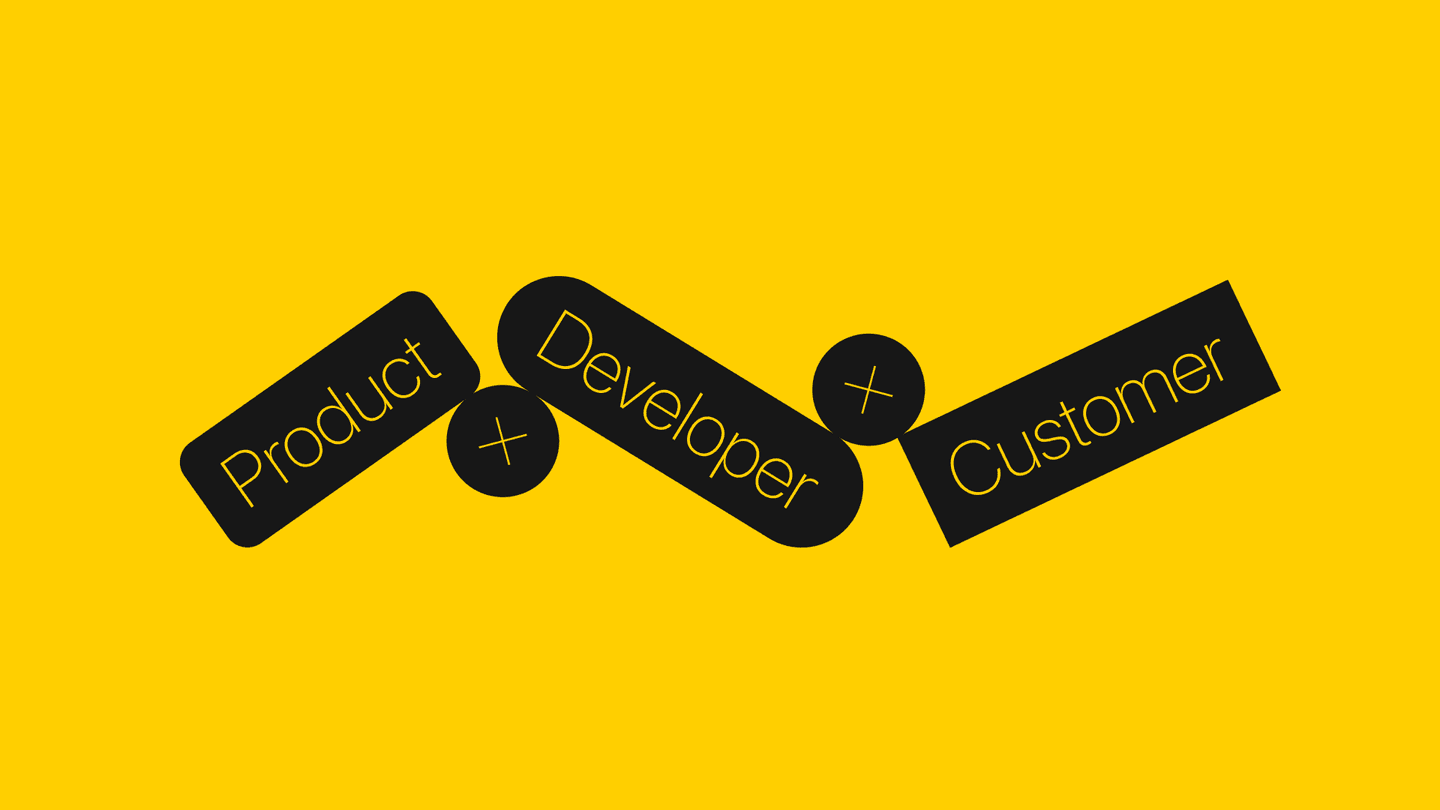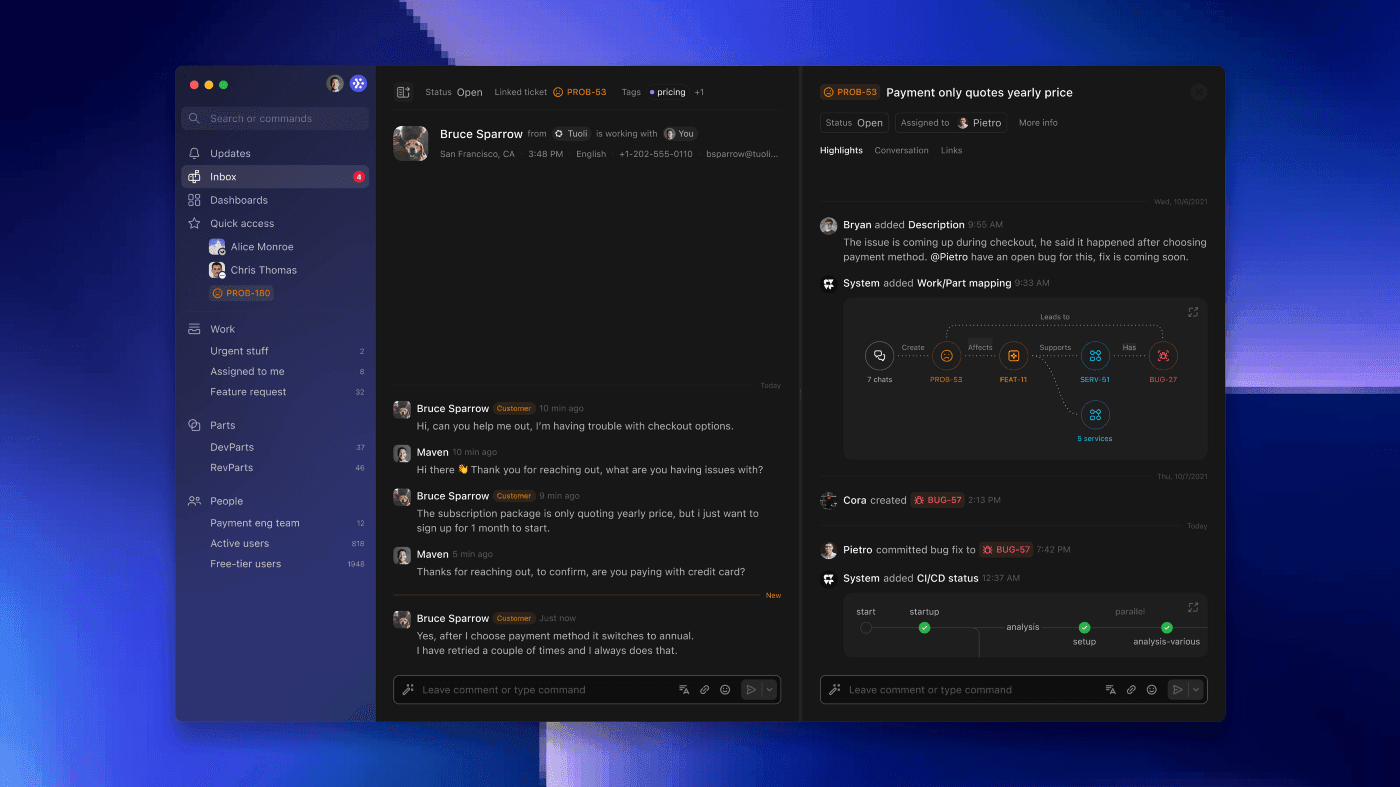You have Jira. You like Slack. You’ll love DevRev!

You have Jira
Almost 20 years ago, Jira redefined work for developers. The magical ticket management system fueled an era that was increasingly powered by the web browser, open source, and offshore development. Atlassian, the company behind Jira, was an original PLG company that let developers use its freemium software, no questions asked. Jira not only changed how we built software, but also how software companies worked. Engineering organizations went from expensive desktop tools to an affordable lightweight web application that upgraded often. Startups went from spreadsheets and emails to a system of record that helped scale their businesses.
Over the years, Jira went from being a bug tracking tool to a platform for workflows and product management. Companies went from monolithic waterfall release planning to agile development methodologies with sprints, epics, and stories. Agile became a necessity. Process was king.
Agile morphed into continuous integration and continuous deployment with the advent of cloud. Work became continuous and even more bite-sized, powered by informal chats and social conversations. Tickets became the new waterfall, and developers became loath to update them, while managers worried about the accuracy of their dashboards. Systems of record were now the breeding ground for vanity metrics such as developer productivity, story points, and burndown charts. The uncontrolled sprawl of metadata made developers crave for a system of engagement that was less informal, more delightful. Work needed to be more than a chore, a mere statistic.
You like Slack
Jira had uncontrolled metadata, one KPI too many, and way more administration than what makers could fathom. More importantly, it celebrated process, and process alone. Product was relegated to component dropdowns at best. Customers were the domain of CRM systems. Users, no one bothered! After all, “users” were a B2C jargon, so why should a B2B software company care?
In the last decade, as B2B went SaaS, startups started to care about informal work and real-time collaboration, including with end users and partners. The informalism of GitHub Issues and Slack was very attractive to companies craving for end user feedback, product-market fit (PMF) jitters, and in-app-everything.
Slack was a master of all things informal. From emojis and reactions to grassroots channels and search, the social tool had made collaboration real-time, delightful, and mobile. Even machines could participate via their bots! That’s how egalitarian social could be. Of course, they had to shun all metadata – process, product, customer object models – to achieve their “work os” moniker. And that clean canvas thinking required creating a parallel universe of channels, one for every “boring” work item recorded by legacy systems of record.
Work, though, is beyond the walled garden of companies. The success of the cloud model – both the public cloud and the offshore delivery “cloud” – has proven beyond doubt that work will increasingly be done in partnership with others. Users of a product, through their community, will play an increasingly important role in improving product experiences, championing products, and partaking in web3 tokenomics of the brand. Work also needs insights, which, for better or worse, needs metadata around product catalog, user activity, and customer transactions.
So the key question is: how do you keep work social, while still preserving product- and user-centricity? What else can one make with one part oxygen, and two parts hydrogen?!
You'll love DevRev
Those two parts of hydrogen are product-centricity and user-centricity, and social provides the oxygen to bind the product, the user, and all work together. There is no ‘P’ in PLG without the user, and that’s why we believe in PLuG. The identity of the user, the notifications to the user, the incentives of the user – they are all key to product engagement. At DevRev, we believe that makers – developers, engineers, and PMs – need to be plugged into the “matrix” of end users.
PLuG (and Play!)
Imagine you could add five lines of code into your application and now your app comes alive with an exhilaratingly simple real-time conversation widget to add social touch to all interactions.
What separates PLuG from other business messengers, though, is not just the ease of use in how you install and configure it, but also what happens when your customer success team is having real-time conversations with your users. Every conversation that is a customer problem immediately gets connected to a ticket that is linked to the right product “part” and tagged with the right developer or PM who owns that piece of code or feature. We call it Product-led User Growth (PLuG). We think this is the future of customer relationship management – real-time, maker-aware, and product-centric.
PLuG, over time, will help Product Managers(PMs) bypass spam marketing emails to educate, notify, and reward end users right in the application. The widget will also capture anonymized data around user behavior and error diagnostics to share with developers. The last mile of PLG will need you all to be totally plugged in!
Real-time work, meet Play!
We designed a work management system built for the social product-led era. Command line tools to create and update tasks from Github? Sure. Slack like channels for issues, tickets, features, and capabilities? No problem. Notifications to make sure you find and fix something even before your customers know about them? Why not? All work items connected to your customers on one end and your code/product on the other? Now, we are talking. Self-healing code? Keep guessing …
Product-led. Customer-centered. Catalog-ready.
We built an exhilaratingly simple system of record for your product that shows you the full picture of features and capabilities of your product “catalog” and connected them back to your work items including real-time conversations.
We call it Trails.
Did we mention it updates in real-time when you check in code to Github?
H20 in love!
The world’s first DevCRM platform – with its design, data, and machine intelligence – will make PLG come to life. With a freemium distribution model, we hope to make it as ubiquitous as water!
You’ve code. You want Product-Market Fit. You’ll love DevRev.
You’ve product. You want Product-Led Growth. You’ll love DevRev.
You’ve Jira. You like Slack. You’ll love DevRev.
Sign up here and become a part of the next revolution that brings your work, catalog, and customers in one place. A place called DevRev.

